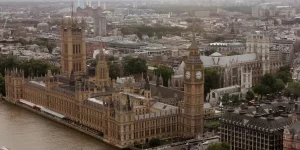As the year of COP26 2021 should be a positive one in the fight against international climate change, presenting innovative providers of low carbon solutions new opportunities for growth. However, on the horizon there are signs that the weather could be changing. Businesses and investors need to be on the lookout for possible changes to current consensus on tackling climate change. Moreover, they should be thinking about steps they can take to sure up support with both policymakers and the public.
A recent Sky News poll conducted by YouGov showed that only two percent of Brits would be willing to see the cost of their heating substantially increase to fight climate change.[1] What substantially means needs quantifying and Brevia will be conducting polling to dig deeper into those numbers. However, despite the UK’s legal commitment to net zero, this should be taken as a warning sign to investors in the UK’s low carbon transition. Particularly as policy costs, to pay for the deployment of low carbon technologies, are levied on the electricity bills of British consumers.
The Westminster consensus is for now behind decarbonization and the Prime Minister, Boris Johnson MP, has made ‘Building Back Greener’ a key part of his pitch to the electorate. Nonetheless, the UK’s Climate Change Committee (CCC) has estimated that low-carbon policies will add £190-225 in total to the average annual energy bill by 2030.[2] This was one of the things that incentivized the Government to introduce a moratorium on new low carbon subsidies through a Control for Low Carbon Levies until 2025.[3] There is limited clarity on what will happen after 2025 and the risk of energy bills becoming a political issue cannot be overlooked. Especially given a) public opinion; b) the record of British governments over the past decade; and c) a legal obligation for a UK General Election no later than March 2024.
Businesses and investors cannot assume that the Government’s evident desire to establish climate leadership at COP26 will provide momentum until and beyond the next General Election. They must be more vigilant than ever in monitoring the shift of public debate around energy bills. While seeking to influence that debate as much as possible to protect the gains of recent years and ensure there are further opportunities in the future.
BREVIA CONSULTING PROVIDES STRAIGHTFORWARD POLITICAL AND COMMUNICATIONS SUPPORT TO BUSINESSES AND ORGANISATIONS
Discover how Brevia can help you and your organisation by contacting the Brevia Energy Team on 020 7091 1650 or emailing us at: contact@brevia.co.uk
[1] YouGov/SkyNews Survey Results, 30-31 March 2021, p.7, link
[2] House of Commons Library, Research Briefing, Control for low carbon levies, 20 December 2017, p.9, link




